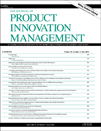![]() An editor at a Frontiers journal has resigned to protest the publisher’s decision to retract the controversial “Recursive Fury” paper that linked climate skepticism to conspiratorial ideation.
An editor at a Frontiers journal has resigned to protest the publisher’s decision to retract the controversial “Recursive Fury” paper that linked climate skepticism to conspiratorial ideation.
Ugo Bardi was chief specialty editor of Frontiers in Energy Research: Energy Systems and Policy. He writes on his blog:
…my opinion is that, with their latest statement and their decision to retract the paper, Frontiers has shown no respect for authors nor for their own appointed referees and editors. But the main problem is that we have here another example of the climate of intimidation that is developing around the climate issue.
Continue reading Chief specialty editor resigns from Frontiers in wake of controversial retraction







